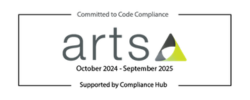Latest evidence added to management of diabetic ketoacidosis guidance

A new version of the guidance for treating adults with diabetic ketoacidosis has been published.
Included in the updated management advice is a single page pathway and additional information to include 16 to 18-years-olds if they are looked after by adult diabetes teams.
It is an update on the first set of guidance issued by the Joint British Diabetes Societies (JBDS) more than 10 years ago, and reflects the significant new learning that has taken place since previous publications.
The updated guidance includes “the new recommendation to consider de-escalating the insulin infusion rate from 0.1units/kg/hr to 0.05 units/kg/hr once the blood glucose falls below 14 mmol/L as a UK wide based on audit of the previous guidelines that found hypoglycaemia and hypokalaemia were not infrequent if the infusion rate was kept at 0.1 unit/kg/hr ever though 10% glucose had been commenced.”
The guidance also “addresses the new problem of DKA and particularly euglycaemic DKA in those treated with SGLT-2 inhibitors. It also for the first time considers ketosis prone type 2 diabetes and the complex issue of the management of DKA in people with end stage renal failure or on dialysis.”
The high prevalence of DKA in adolescence has led to a focus on the treatment of young people aged between 16 and 18, who may be admitted to a paediatric or adult unit. The paediatric and adult guidelines differ particularly around fluid replacement. The updated guidelines can be used for this age group if they are looked after by adult diabetes teams (young people aged 16-18 years).
The guidelines, revised in June 2021, also include:
-
Rationale for current practice
-
General management issues
-
The involvement of diabetes specialist teams
-
Special groups
-
Recommendations
-
Complications of DKA and its treatment
-
Implementation of the guidelines
The single page treatment pathway is broken down into:
-
0 to 60 minutes: Immediate management upon diagnosis
-
60 minutes to 6 hours
-
6 to 12 hours
-
12 to 24 hours
Lead author of the new guidelines is Professor Ketan Dhatariya, of Norfolk and Norwich University Hospitals NHS Foundation Trust, with recommendations developed and reviewed by a multidisciplinary team led by the Joint British Diabetes Society (JBDS) and including representation from Primary Care Diabetes Society, Diabetes UK.



)
)
)
)

)
)
.jpg/fit-in/1280x9999/filters:no_upscale())
.png/fit-in/1280x9999/filters:no_upscale())
)
)
)
